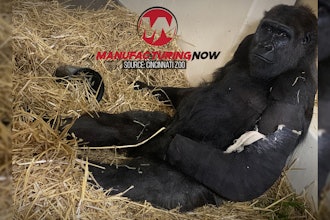Lubrication is a key aspect of plant maintenance and an important step in preventive protocol. Food manufacturers expect their lubrication program to optimize equipment performance, keep operations running smoothly and even extend the life of the equipment. As component in the plant's productivity and as part of operating costs, lubrication matters to the bottom line of business. Furthermore, regular lubrication can be highly cost effective by preventing downtime that results from a reactive stance to maintenance that only kicks in after a problem is found.
The passage of the new Food Safety Modernization Act (FSMA), however, may have food manufacturers re-thinking routine aspects of plant maintenance, such as lubrication, and is changing the way many of them will do business. The bill is the biggest overhaul since 1938 and touches on everything from import restrictions, inspection and safety compliance, prevention measures and more, creating a steep learning curve for food manufacturers as they adapt to the regulations. Many of the new FSMA laws go into effect in 2012, and being prepared for the changes as they emerge is vital.
In order to make food safer for consumers, FSMA focuses on preventing contamination outbreaks and quickly containing outbreaks that do happen by accurately tracing the source of the contamination. Although consumers mainly worry about microbiological outbreaks (i.e. a bacterial outbreak, such as salmonella), the possibility of contaminating food with toxins should not be downplayed. As such, any food manufacturer should be aware that under FSMA, the FDA will increase inspections of food facilities and that maintenance protocols, including lubrication, can come under scrutiny. The frequency of inspections could range from every three to five years if a food plant is considered a high-risk facility or five to seven years if the facility is deemed low-risk.
Another FSMA provision will require an increase in documentation. As part of the new preventive measures, food manufacturers will be required to create a Food-Safety Plan that documents and describes the facility's preventive-controls procedures. The plan would need to be available to the FDA upon request. Three important aspects of the Food-Safety Plan are implementation (preventive controls designed to significantly minimize or prevent hazards), monitoring (to ensure the controls are effective or to take action if they are not), and verify (to ensure that the controls have the desired effect of reducing the risk of contamination in the facility).
There are several ways food manufacturers can prepare their current lubrication program to meet the emerging standards of FSMA. The first is to analyze potential hazards, also a good first step in preparing a Food-Safety Plan. When it comes to lubrication, both the storage and use of the product must be considered. Additionally, consider which lubricants are used for which application and the merits of switching to all NSF-registered H-1 lubricants that will not harm food should it come into incidental contact.
Until recently, many food processers used only H-1 lubricants where it was absolutely necessary and H-2 or H-3 lubricants in all other applications. H-2 and H-3 lubricants cannot come into contact with food at all, making contamination a constant possibility. The changing legal landscape and move toward higher safety standards, paired with the improved quality of lubricants now makes it all the more likely for food manufacturers to switch to all H-1 lubricants. Better technologies make the new H-1 lubricants as long lasting and effective as traditional H-2 or H-3, meaning food manufacturers do not have to sacrifice quality or money. The technology also means H-1 lubricants can now be applied less often, which saves money. Using all H-1 lubricants eliminates the worry of cross-contamination, for example, a misapplication of an H-2 lubricant when an H-1 is needed. Many food manufacturers would rather play it safe with all H-1 lubricants than risk a costly and time consuming contamination incident.
Finally, to prepare for FSMA regulations, make sure employees are educated on which new laws will pertain to your facility. Ensure that all employees are on the same page regarding the proper use of lubricants and other maintenance products. Keeping employees on top of protocol will assure that everyone at your plant is operating at peak safety levels and have a comfortable environment in which to work.
By proactively working to meet new FSMA regulations, food manufacturers can come out on top in several instances: they can lead the way in customer trust and satisfaction, build positive relationships with regulators and set the standard for others in the industry to follow. Preparing for an increase in inspections, creating a safety plan and carefully documenting safety protocol, and evaluating new ways to make regular plant maintenance safe will all go a long way toward FSMA compliance.
___
Camie-Campbell, Inc. produces spray adhesives, lubricants, cleaners and degreasers. The line includes Tom's Secret Formula Earth Friendly B-404 All Purpose Lubricant, a biodegradable, NSF-registered H-1 lubricant. For more information visit www.tomssecretformula.com.






















